|
Are you tired? I am.
It feels like I have been tired since the dreaded Referendum that polarised this country. Actually, I am not tired, I am fucking exhausted. Holding both a US and a UK passport right now makes me feel like I am holding a turd in each hand because whoever wins the elections this year, there is still a fight on our hands. I have now been a full time Carer for about 2 years and as a friend reminds me just when I need to hear it- you're in a marathon John, not a race. Of course this makes perfect sense but not when you're exhausted. That said, this reminder is something that has struck me about the current election(s) and what I see is the general mood of the electorate. So here are a few things to keep in perspective as the 2024 elections roll on... 1. Our lives are a marathon, not a sprint. Take the necessary break from the election news. Nothing is going to change that much from day to day because we are polarised at the moment. The media at the moment is feeding your anxiety not nourishing your intellect. 2. As an immigrant, a son of immigrants and a queer person, I know that I will battle ignorance till my last breath. This unfortunately is the reality of life for marginalised people in the world. Some minds you enlighten, some people are fucking idiots. Learn the difference and don't worry about the minds you can't change. The minds you do change are more important. 3. Start to think of ways you can help going forward. What can I do that is proactive and not reactive? Change can be motivated by reaction but in my experience once the emotions calm down, you have to have something else to continue the momentum. Find that for yourself and channel that energy where it belongs. 4. Stop picking the scabs. Following on from above, stop reacting to every news article, every social media post and sharing every awful image, meme or doom scrolling article you come across. Even bad publicity is still publicity and the best way to not feed the monster is by scrolling past instead of engaging with every piece of doom that crosses your path. Remember as a kid being told not to pick your scab. Well here I am to remind you: Stop picking the scab! 5. Find one good thing about each day whether it is 5 minutes alone enjoying a coffee, or watching a bird in the early hours, or remembering a happy time. You get the picture. If you find more brilliant but if you can't find at least one good thing a day to shine a light through the political storm clouds hovering above us right now then you need more of a break than you realise. You are no good to anyone or the fight ahead if you are not recharged.
0 Comments
Every year for my birthday I write myself a birthday card with resolutions for the coming year. I open the card the following year and reflect on what year it has been. This year, I have no idea where that card is, nor do I think it matters what I set out last year.
Last year, David had finished a course of aggressive radiotherapy and chemo. We were beginning to sort out our life post treatment and post pandemic. Things felt like they were turning around for us. Whatever I wrote in that card most likely reflected that. That's the thing about life, as much as there are things within our control, there are equally if not more outside of our control. Cards on the table... Earlier this year, I thought I would be alone today on my 47th birthday. David's tumour returned with a vengeance and although he was in the best hands the country had, there was still a chance he wouldn't make it. We were simultaneously facing homelessness and financial ruin on top of his cancer. I didn't have any chance to reflect on anything that was happening at the time. 2023 has felt like continuous bulbs flashing in my face without letting my eyes adjust. Cancer *flash* Eviction *flash* Business failure *flash* 2.5 months in Southampton *flash* Leaving Cornwall *flash* Moving to Somerset *flash* Ongoing health complications *flash* Failing eyesight *flash* *flash* flash*flash* Yet as I sit here typing this, our three legged cat Rosie is curled up next to me. David is in bed resting with Alys no doubt cuddled into him. Tilly is in her cubby behind the chair in the lounge avoiding the other cats and waiting for David to get out of bed so she can sit next to him and keep guard. I am not alone. David is alive. We are making new memories together as he recovers and are both excited about life again. Somerset has reinvigorated us both. Nothing could have prepared us for this year but we're still here, going stronger than ever. Life looks very different for us on every level but we're both alive and together. Our girls are with us and these Cornish girls are thriving here in Somerset. But you know what else, each morning in Southampton during David's hospital stay; I physically woke up alone but never felt alone. I should have felt alone given everything thrown at us and feeling like I was carrying the weight of the world on my shoulders. I should have felt alone but I didn’t, not once did I feel alone. From the four corners of the globe our family and friends supported me and helped me through what felt like a ghost ship floating through an abyss. A friend of mine recently said that good friendships don't happen by accident, they are a reflection of what type of friend you are. Those words lit me up like a beacon in the darkness. I would never be able to describe fully the gratitude I have for the love and support I have seen this year. To be humbled by it is a gross understatement. I started sharing updates on social media as a way to inform everyone as to how David was doing in the hospital. It was easier than having individual conversations. What I never imagined was how through exposing my vulnerability I would find the strength and courage each day to get out of bed and fight for him, fight for my family's survival and somehow maintain some semblance of sanity. I thought of my mother a lot during that time in Southampton. She always put on a brave face when times were tough and would just say to us "siguimos Pa'lante." That word "Pa'lante" would come to define this year like no other. Unlike my mother, I couldn't wear a masque all the time. I did show my hurt. I showed my fear. I showed my happiness and I continue to show my gratitude. I may have my moments when I need to be alone in order to recharge but I know that I am not alone. I know that we are not alone. I know that each and every person in my life is not alone because we have each other and we have shown one another this through our friendship, love and support of one another. 2023 has been some year huh? Well let’s be honest, would any of us have survived the last 5 years without one another? With so much darkness in this world, let gratitude be the light that navigates us through it. Thank you all for a birthday like no other. A birthday that is truly a celebration of life. Southampton is a place that I have to say I associated with an ill fated liner and regular transatlantic crossings. It's not a place I knew much about or a place I ever thought I would spend as much time as I have done in. Nor would the reason for that stay have been my husband's cancer treatment. Life just likes to fuck around with you at times, doesn’t it?
In the near 10 weeks I have been here, I have learned about the history of the everyday people who lost their lives on the Titanic, the workers who were neither Jack nor Rose. I have seen the scars of its wars with the France and Germany. I have learned of its own connection the Mayflower, which I had always associated with Plymouth. Southampton is a city where cruises dock daily and tourists wander taking in the various plaques showing its connection to Jane Austen. They photograph the mish mash of architectural styles from its castle walls to the towering student housing flats that dominate the landscape as well its city walls and Tudor relics dotted about the Old Town. Like most of Britain’s coastal cities, it has its social problems which are visible on its streets. There is a sizeable homeless population. I have seen outreach workers trying to reach those with mental health problems. On any given weekend and during football matches a heavy police presence are about and you can hear disturbances of those who have had one too many. These aren’t problems unique to Southampton. You can see this picture all over the country. They are the product of the socio political class that has dominated this country for too long. All that said, Southampton has been kind to me in the time I have been here. My time here can be called what my therapist always refers to as a "dark gift." For those who don't follow my video updates of my husband's extended stay at Southampton General Hospital, I refer to these "dark gifts" often. These are positive things born out of what feels like dark and hopeless times. They are lessons that help you rise above the negativity and remind you that even in darkness, there exists light. For this Bronx-born New York City boy who has been living a quiet existence in the wilds of West Cornwall, my time here has reawakened parts of myself that have been dormant and unused. It has also reignited my street smarts. In many ways, it has laid the foundation for what comes next. I have had to dig deep to find the courage and confidence to deal with hospital bureaucracy, social services and my own solitude. I have filled my own down time with reading, re-engaging with foreign languages I haven't used in years and observing life again. In fact, re-engaging with life, which is something I haven't been able to do since before the first days of the pandemic. I have found myself writing notes for future products and working on current ones when I am not exhausted. In my solitary walks which are often, I find myself snapping photos of this city. It is eclectic in its architectural make up, infuriating with its traffic system, and only minutes from outstanding beauty just outside of its city limits. Yet, it has come to occupy a special place in my heart during this difficult time. It is now a part of me as any place is that I have had any extended relationship with. I wanted to share a small selection of what I have seen here, my mood and just a little insight into the last 10 weeks. (All photos taken by John Lugo-Trebble) If you had asked me years ago that I would find myself in the position of having to care full time for my husband who was diagnosed with cancer, I wouldn’t even thought it possible. First of all, no one sits there and thinks about getting cancer or looking after someone who has cancer, well no one should at the very least. Second of all, I would have laughed it off and probably said something like “pfff, no by then my books would have started selling that we would both have the time to pursue the creative projects we have both wanted to work on separately and together.”
Well knowing myself full well, it wouldn’t have been said that eloquent or child friendly. But you know the old saying, “make a plan and the Universe will laugh at you.” To be honest, at this point in all our lives none of us could have predicted living through a global pandemic so there you go. We shouldn’t be surprised by much anymore. When you are caring for someone else full time, a few things can happen. The first is your boundaries can become blurred, are you a carer or still their husband, wife, spouse, brother, sister, etc. The truth is, you’re both and being aware of those lines is so important, for your own mental health but also for that of whomever you are looking after. Loss of independence is a common thread you will share the person you are looking after and giving them as much independence (as long as it is truly within their medical diagnosis to do the tasks, please always seek medical advice on what they are able to do and not do) is vital for their mental health. As for yourself, your independence is gone because you are looking after someone else AS WELL AS yourself AND children, pets, the house, you name it. I can guarantee one thing, you will put yourself LAST and I was reminded by a caseworker this week that “You always put your oxygen mask on first before you put it on others.” As a Carer, our wellbeing is essential. It is mandatory. You CANNOT look after another person if you do not look after yourself. As a Carer, I have also learned that time is both your friend and enemy. There is not enough of it and when there is, you are usually too tired to do anything with. This happens a lot in the beginning before you start to figure out your own structure. As a writer, I approach it with the mindset, that if I have 10 minutes to write, use it because I don’t know when that 10 minutes will come again. Also, we tend to think in grand terms of time when in reality, time is made up of smaller and smaller increments that come together to make up a day. So, I began realising that it was possible to look after myself when I had 5 minutes here, or 10...maybe even 15 minutes. I kept to these smaller increments because when I first became a Carer, I was given the advice, “when your husband rests, so should you.” So if David was having a nap, rather than busy myself with housework or things would tire me out more, I started to use that time to rest whether that was have a cat nap or watch something or use at least some of that time to keep my mind engaged. I compiled a list of things that can range from 5 minutes to 15 minutes. Honestly, it is your decision but I hope it helps others as it has helped me. 1. Free Writing: As a writer, I always get ideas for what I want to write at the most inconvenient time and it’s frustrating when you don’t have the time to develop them. I began free writing for 5 minutes so I could literally dump my ideas onto the page where they would be safe to develop them later. It’s been great for that but also clearing my head. If I get other ideas later on, I either type a message on my phone or record a voice message for myself. 2. Journaling: You need to get things out of your head because you will have such little space in there that it will become crowded very quickly. If you enjoy writing by hand this is the best way because you can sit and write at whim. But you might enjoy recording it on video or audio. There is no right way but also producing a record of your emotions and frustrations. They will also help you identify reoccurring stresses and triggers. 3. Videos/ Blogs/ Social Media: You won’t have the time to scroll through your social media as much as you used to, this is actually not a bad thing but we often forget how far and wide our loved ones are these days and you will want to throw your phone across the room when it starts to beep incessantly because everyone is messaging you (at least at first). Giving updates on social media is actually a very positive and great way to reach out to all your loved ones at once. Forget that it is a public forum and speak to them directly; this will help you get over any insecurity about public speaking. If you prefer to blog, go to it. I have never been able to write a blog in 15 mins but there are a lot of amazing people out there who probably can, you may be one of them. It serves the same purpose. 4. Audio messages: I can’t even describe how much I love receiving and sending audio messages to friends and family. Being a carer can feel so lonely at times and hearing a comforting voice or having just that 30 seconds to send a message to someone where they can hear you is the closest you will get to another human connection when your loved ones are far away or unable to visit. Every messenger has this function now. It’s brilliant. 5. Read: I know for many this is not as easy as it sounds because your mind is too busy or full but find something fun or silly to start with or reread something you loved. It will help break that block and if you are writer, you know how important reading is. If you just need to escape for a little bit, books were there before Netflix and will be there after Netflix is long gone. 6. Learn: This sounds ridiculous but hear me out. There are apps like Babel and Duolingo where you can set times for lessons. You can learn a new language or refresh one for as little as 5 minutes a day. There are other educational apps as well as free online at your own pace courses you can do. You set the pace and it takes as long as it takes. Just make sure it is something you will enjoy, this may not be the time to retrain but it could be the time to learn for learning sake and that will help your mental state. Your local library probably has tons of free courses online and a quick Google search will open a whole new world for you. 7. Exercise: I own a treadmill so I have that but whilst my husband has been in hospital I have begun dabbling with Qigong and this practice is similar to Tai Chi. It can be done in as little as 8-10 minutes. It is a fabulous way to centre yourself. There are loads of YouTube videos out there. You can practice any chance you get. Also there is Yoga and other things like Pilates, you name it. Best of all, you will most certainly find a video showing you how to do it for free on YouTube. 8 .Meditation: Being in the present is an essential skill for a Carer. Meditation doesn’t have to be 3 days in a monastery. You can learn simple techniques like mindfulness or more advanced forms of meditation if you wish, whatever you choose just make sure you set your pace and don’t be discouraged if it doesn’t work the first few times, it probably won’t because it is difficult to quiet the brain. When you learn to do it though, the peace you will feel will help you with your day as a Carer. 9. Ask for Help: The strongest person in the room is the person who asks for help. You weren’t trained for this role. You are learning to be a carer from a place of love. You will make mistakes. Reach out to friends, family and support networks whether it is other carers, or charities, or your GP. If you ask people for help it will also avoid feeling like you are losing control of the situation because your loved ones will think they are helping by doing a lot for you but when someone takes over, it can lead to feelings of insecurity and inadequacies. Even though they are coming from a place of love, it can also lead to resentment and this is the road every carer wants to avoid walking down. Ask for specific help and draw up boundaries. 10. Rest: I cannot stress this enough. You have a finite amount of energy a day. If you don’t look after your body and let it rest properly, you will go beyond sleep debt, there is no paying that back. You enter deficit and this is where mistakes are made that have consequences. If you do nothing else but rest for 5, 10, 15 minutes at a time, you are doing the best thing for yourself. On Memoir
Unless you have been living under a rock, a certain memoir is on sale and causing an incredible amount of controversy. I’m not using this space to argue for and against a certain memoir but I often note how interesting it is that the press and the public are so easily distracted by Royalty and how the government uses that distraction to their benefit. Always look at what isn’t being reported or what is being talked about very little...these are the issues that matter. Enough on that though. Last year I began reading more memoirs mainly because I was struggling to get into fiction books, which is not a lovely space to be in when you write mainly fiction. The thing is, truth is stranger than fiction and if you have been paying attention the last few years, these are hard times for fiction writers and to our comrades who work in the dystopian genre, I feel for you. One of the memoirs I finished end of last year was Fingers Crossed by Miki Berenyi, co-founder of the group Lush. In subsequent interviews about her memoirs there have been questions and accusations of “score settling” and “revenge.” It got me thinking about the definition of memoir which in its basic form is: a personal account of a time in a person’s life. This means that when people accuse or criticise someone’s memoir often they dismiss the fact that the account is from the person’s own experience and perspective. One of the common traits I have found in memoir writing is that often it is a cleansing exercise and that is what interests me. No one wakes up one day and thinks: “Ooh let me write a book that is going to piss everyone I know off.” There is usually something that haunts this person or in some cases a need to tell the story so that they can move on. I think we can all relate to that feeling. We live in a world with more forms of communication and no communication at the same time. This is one of the reasons books remain popular and memoirs in particular sell like hot cakes. In a memoir, you have the time and space to tell your story before someone comments idiotically because they read the first three words of your post and assumed the rest. Also, the great thing about a memoir is that if someone really finds an issue with what is written about them well, they have every right to share their side in their own memoir. I’d actually love to see more of that but then I’m a mischievous sod. Going back to a certain memoir though...keep an eye on what is happening at Westminster Palace more than Buckingham, the former affects you directly. I'm 46 today and given that my mother died at 50, and my dad died at 30, certain birthdays make me a bit more introspective than others.. I don't have any serious health concerns, investigations but no concerns. I'm in general good health and in spite of the many losses and dramas that have plagued my life, I can look back so far and say I have led a very full and good life. A life rich in love, friendships and experience...things the bank can't take away no matter how indebted you are.
46 years is not much and yet it feels like 6 lifetimes. I don't see the man I am when I look in the mirror. I don't really know who I see anymore but I remember a quote from Douglas Coupland's Life After God “I never expected to become this strange person I had become but I was determined to know who this person is.” It fills me with comfort and reminds me one of the most important life lessons I have learned: No matter how low I get, whatever happens, I know I am not done. My therapist reminded me that you can't count someone out in the 40's and I remembered thinking, that wasn't what I was saying in the session but rather I am embracing my ageing and learning that there are things I do differently now. Things that I don't want to do anymore and the inevitable: Things I can't do anymore. I don't see it as sad either but rather an opportunity to fill that space with more things I want to do. The last few weeks, I have been thinking about what I have learned during these eventful 46 years on this planet and I thought I would a share a few of them on my birthday. 1. You can't control outside stress but you can take steps to address how it affects you. End of the day, you have to look after your own mental health. 2. More often than not, bad days are usually one moment that you can't let go. Not always, but most are. 3. People are going to talk no matter what. Walk past them and smile, it gives them even more to talk about. 4. Putting others down to big yourself up feeds your insecurity, it doesn’t build your confidence. 5. The two most boring questions to ask when you meet someone are "Where are you from?" and "What do you do?" 6. Learn the difference between remembering the past and feeling nostalgic for it. 7. Never stop learning whether it’s reading new books, a new activity, a new language. 8. You're most likely not going to be friends with the same people you were friends with in your 20's. You were all exploring who you were yet to be. Friendships that are meant to last; will. Those that weren't had a place in your life for a reason. 9. We are not just one thing, we are many things and often they are contradictory. Embrace them all. All that crazy shit is what makes you, you. 10. Celebrate your birthday no matter how shitty you feel about it because like it or not, it’s your day. Honour yourself. Treat yourself to something. You are given one day out of the year where it is really about you! Take the damn day and run with it! We're halfway through Pride Month and as it is 50 years since the first UK pride, I got to thinking about some of my favourite British LGBTQ+ films/ programmes. This is by all means not a definitive list and I am sure I could name more but in the interest of starting a conversation, here are 10 of my favourites in no particular order of preference.
1. Heartstopper: This current Netflix series is centred on Charlie, a recently outed teen and his growing relationship with Nick, a bisexual boy in his school. Set at an all boys school, the show deals with their respective group of friends and the drama that ensues when their relationship becomes known. Coming out is the overall theme in the series and as it has been renewed for another two seasons; I'm looking forward to seeing how the characters and storylines develop from there because as we know, coming out is only the beginning. 2. Beautiful Thing: This film adapted from Jonathan Harvey's 1993 play stole our hearts in 1996. Set on the Thamesmead Estate in SE London, it follows Jamie & Ste who's growing awareness and blossoming love is chronicled during one of London's hottest summers. It is one of the first major LGBTQ+ films of the 90's that did not have an underlying storyline that involved HIV/ AIDS or death. Doesn't seem like much but ground breaking in itself. 3. Get Real: Another play adapted into a film, which sadly did not receive the same accolades that Beautiful Thing did. Both films dealt with teenage sexual awakening but were two different types of story and had they been treated as such, perhaps it would have been better received. In this film, Steven is aware of his sexuality but not out. He spends his school days lusting over John, the popular kid at school and star athlete. After school he looks for hook ups to satisfy his awakening sexual appetite. When the two run into one another outside of school, it sets off a chain of events that will change both of their lives. 4. The Naked Civil Servant: Adapted from the memoirs of Quentin Crisp, and starring John Hurt, this film takes us through the early days of Quentin's life in London and filled with the witticisms and observations that would come to define his work. 5. Victim: This 1961 film was the first English language film to use the word "homosexual." Dirk Bogarde stars as a respected lawyer who falls prey to a blackmailer because of his affair with a young builder; as well as the fallout from it. It was ground breaking at the time and began a conversation about the crimes that were created as a result of homosexuality being illegal, particularly blackmail. I recently shared a piece I had written about this film which can be read here. 6. Hating Peter Tatchell: This documentary is a must see for any LGBTQ+ worldwide but in particular those of us here in the UK. Peter has devoted his life and sacrificed his own health and safety for the cause of LGBTQ+ equality and human rights around the world. Aptly titled, he remains a controversial figure but like activists' such as Larry Kramer, we must acknowledge that it is their tenacity and fierce approach that has been needed to press the accelerator on LGBTQ+ equality. You don't have to like him, but you need to respect him. 7. Christopher and His Kind: This BBC production stars Matt Smith as Christopher Isherwood and is based on the book of the same name. In this adaptation, we follow Christopher to Berlin in the last days of the Weimar Republic, his relationship with a young German whom he tries to help escape Germany and their reunification after the war in a divided Berlin. Isherwood's few years in Berlin would inspire the musical Cabaret and although he would spend the rest of his life in California, his Berlin years would come to define his literary work. 8. Maurice: Starring James Wilby as the title figure and Hugh Grant as his love interest. What makes Maurice such an important work is that E.M. Forester wrote the original novel in 1913-14 and later revised it with explicit instructions that it be not published until after his death. It chronicles the life of Maurice Hall and his homosexuality as reflected in early 20th Century England. Forester wanted the book to have a happy ending and wrote it as such. This put him at odds with the law but nevertheless he gave Maurice, the ending in which two men could be happy together. That love could exist between two men even when the odds were against them. 9. Another Country: Based on the life of Guy Burgess, one of the Cambridge Five, it stars Rupert Everett & Cary Ewes as well as Colin Firth. Told in reverse from Guy's exile in Moscow after being outed as a Russian spy, it exposes the cruelty, coldness and hypocrisy of the British public school system. It was also the first ever LGBTQ+ film I ever watched, one late night on PBS. I had never seen two men embrace in a film until then and it stuck with me. 10. Queer As Folk: This series is now on its second reincarnation in the form of another US adaptation but in this moment, I am referring to the original. I don't think there is a single person who can't remember the premiere episode that follows a group of friends in Manchester who are living, loving and fucking their nights away. I wrote a piece last year about it for Gay Life Manchester which you can read here. I wrote a piece last year for Gay Life Manchester Magazine on this show’s enduring popularity which can be read here. So not a definitive list but a start, what are your favourite UK LGBTQ+ films and programmes? Share them in the comments, on social media or feel free to message with them. Happy Pride Everyone! 60 years ago this August the film Victim starring Dirk Bogarde premiered. It was the first English language film to use the term “homosexual.” The film centres around the blackmail and subsequent suicide of Jack “Boy” Barrett who was protecting his friendship with married solicitor Melville Farr (Bogarde) just as he is about to be named Queen’s Counsel. The film uses friendship/ relationship interchangeably because the relationship between Jack and Melville is never consummated but is intimate enough to arouse suspicion and make them the target of blackmail. Victim is not often thought about these days because of how far LGBTQ+ rights have progressed since 1961. It is though one of the most important films for British LGBTQ+ History and one that is still relevant today. Homosexuality is no longer illegal but blackmail of LGBTQ+ individuals is still a reality.
Janet Green and her husband John McCormick wrote the screenplay for Victim after reading The Wolfenden Report which was commissioned in 1957. The Report recommended that homosexual acts between consenting adults be made legal, thus replacing the existing Criminal Law Amendment Act 1885 which made all homosexual acts between men illegal. It also recommended the age of consent be 21. The recommendations were not put into law until the passage of the Sexual Offences Act 1967 which then legalised homosexual acts between men as long as they were consensual, in private and both men were 21 or over. The husband and wife team were no strangers to tackling social issues having previously written the screenplay for Sapphire; detailing the rising racial tensions with the arrival of Afro-Caribbean immigrants in the 1950’s, known today as the “Windrush” Generation. Victim begins with the police coming to arrest Jack “Boy” Barrett at the building site where he works. Jack escapes and we learn that he is being investigated for the theft of £2300, which the Police suspect has been used to pay off a blackmailer. Jack seeks help from his friend Eddie to remove some incriminating evidence from his lodgings including a scrapbook he had made of Melville Farr’s career. He tries to contact Melville to warn him but is rejected when Melville for help, including former lover and bookseller Harold Doe. Jack is caught on the run and arrested as he is trying to destroy the scrapbook. He refuses to give up any names and hangs himself in the detention cell. By this time, the police have pieced enough of the book to know Melville Farr is somehow tied to the case but unsure how. Eddie visits Melville and shows him the photo that Jack was protecting; it was of he and Melville sat together in a car. In the photo, Jack is crying. The perceived intimacy in the photo was enough to imply a relationship although later on even Melville concludes that a good solicitor could have argued that out of a court. So why does he embark on a mission to expose the blackmailers and risk his entire marriage, reputation and career? As the story unfolds, we learn that Melville had a relationship at Cambridge with another man who committed suicide because Melville was frightened of his own sexuality. His wife was fully aware of this and he swore that he would never act on his impulses again. He keeps his promise and although he strikes a friendship with Jack, it isn’t until he can’t control his emotions that he ends it, which is the catalyst for the film’s events. It is perhaps the guilt of both deaths that makes Melville realise that enough is enough. Although he starts out as a lone avenger, once he realises the scale of blackmail and the layers to it, he decides to enlist the police and out himself in open court rather than let the blackmailers. It is worth noting that we never see the court case itself most likely because the law itself still made homosexuals criminals as much as the blackmailers, if not more so? In terms of representation by our standards now, the film is problematic. The main character is not a practising homosexual. This could be that the portrayal of such an act would have not been allowed by law or the censors, who had already taken issue with the film prior to its premiere at The Odeon in Leicester Square. The other homosexual characters are portrayed as weak. They live in fear or are pushed to commit crimes to pay for their “crime of existing.” The “accepting” heterosexual characters are still homophobic in their assessments of their friends. They tolerate them as best as they can because of their humour as we see in the case of Madge, a model who frequents The Salisbury, a notorious gay pub since the days of Oscar Wilde. They pity homosexuals as much as they are disgusted by the acts they commit. There is also paranoia that homosexual predators are everywhere. There is a belief that society is too permissive and descending into a “degenerate” state. When the blackmailers are revealed, they show no remorse as well as an absolute disgust for homosexuals. They even go as far as to say they are doing the work that the police refuse to do and punishing homosexuals as they should be. Language-wise, I don’t think there is anything said that most of us haven’t heard by now but in 1961, it certainly wasn’t said in cinema until Victim premiered. That said, the film holds a mirror up to the hypocritical nature of 1960’s British society. The Police Captain refers to the law that punishes homosexuality as “The Blackmailer’s Charter.” The law itself created a rise in blackmail. Victims of blackmail were often forced to commit other crimes because effectively they were born criminals. They couldn’t got to the police to report blackmailing without fear of being arrested themselves. As in espionage, secrets are a valuable currency and the cost to many homosexuals being outed at that time was a price too high to pay. You would lose all social standing, income, family and friends. If sentenced to prison, homosexuals were often the lowest class of prisoner and subjected to horrendous abuse by both prisoners and staff. The fear alone kept these victims from coming forward. As Calloway, a blackmailed character in the film says, “Why should I be forced to live outside the law because I find love in the only way I can?” Today we are free to love and marry by law. We cannot be discriminated against in housing or employment by law. Yet, blackmail is still on the rise. The law can be argued doesn’t always work in our favour and this too can fuel blackmail. The National Office of Statistics reported a total of 46,429 blackmail offences in England Wales in the last 5 years with nearly 11,000 in the last year alone. It is worth noting that figure isn’t entirely LGBTQ+ related. Galop (the UK’s LGBT+Anti- Abuse charity) surveyed over 700 LGBT+ people and found that in the last five years, 14% had experienced blackmail. Outing and Doxing (releasing personal information with malicious intent) were experienced by 34% and 21% of respondents respectively. In the first half of 2020, there were three high profile cases in the UK in which defendants were charged for blackmail, including a teenager who lured men on Grindr and then threatened to expose them. Although the law is on our side, the fear and shame keep many vulnerable older men in particular from seeking justice. Blackmail though is not just the concern of older men, only recently Colton Underwood, The Bachelor contestant was blackmailed with photos of him leaving a gay sauna prior to coming out publicly. “Fear is the oxygen of blackmail” says Melville Farr in the film and ultimately what Victim sheds a light on, is how a culture of fear furthered a criminal enterprise. Fear that society would collapse into a degenerate state kept anti-homosexual laws in place. Fear that others would think homosexuality was okay kept homosexuals from living open and healthy lives. Fear of being outed kept many homosexuals paying the high price of what Harold Doe in the film says, “nature’s dirty trick.” The fact that blackmail is reported and cases are prosecuted is a massive step forward from 1961. That said, without eliminating the fear, shame and stigma of homosexuality that fuels this crime, LGBTQ+ People remain susceptible to victimisation. I have lost count the amount of AIDS related programming I have watched in my lifetime and last year’s It’s A Sin, shared with a younger generation those days when sex was hedonistic until it wasn’t. Sadly much of the HIV/AIDS storylines missed a generation or two who grew up in a time where AIDS was not a death sentence and equality under the law became a reality. In that respects the show did much to restart the conversation that had gone quiet.
But let’s put aside It’s A Sin and go back to 2009 when House of Boys was released. An English language German-Luxembourgian production starring Layke Anderson, Ben Northover, Udo Kier & Stephen Fry. It also has a fantastic soundtrack that captures the early 80’s beautifully. Set in the early 80’s, the film is about Frank (Anderson) who runs away from his privileged Luxembourg upbringing to Amsterdam where he goes to work as a waiter then dancer in a club called House of Boys run by Madame (Udo Kier). Here he falls for the seemingly straight Jake (Northover) . Frank’s best friend at the House of Boys is Angelo, who is dancing to save up for his transition surgery. They are looked over by a house mother who treats them as her own and is devoted to Madame for saving her life. After a tragedy (I won’t spoil it here) Jake and Frank get close and seem to be on the road to a relationship outside the House of Boys when Jake gets sick. It’s the early 80’s and it’s no surprise to the viewer what dark cloud is hanging over Amsterdam. Stephen Fry plays Dr. Marsh an English doctor working in the Netherlands who becomes aware that the disease killing off boys in the US and UK has arrived in Amsterdam. What starts out as a crazy little party film of runaways and hustling now morphs into a film of community, love and compassion. Jake and Frank’s friends rally to support Jake as he slips away. It is these scenes where we see the effect of the disease on his mental state including involuntary masturbation which was handled in a way that wasn’t vulgar. Flashbacks to his unhappy childhood are juxtaposed with current scenes of Frank holding him and his friends touching him. People often forget how powerful the image of an AIDS patient being touched or held was. House of Boys doesn’t go down the road of familial rejection after diagnosis and disappearing from the lives of friends that other programmes or films does. In this film, the friends are at the centre and they care for one another. The final scenes in the film and the fulfilment of a dying wish don’t just fill you with emotion, they fill you with compassion. You almost forgot how wasted Frank becomes and see only his light, and that of those around him. There are many stories in the HIV/ AIDS epidemic and this is one to definitely watch. House of Boys may not have received wide acclaim but it left its mark on subsequent depictions of those early days in the productions that would follow. Web series offer a diverse range of LGBTQ+ . Technically, Netflix, Prime and original programming on streaming services alike are classified as web series but I am referring to productions that are usually crowd funded or have a limited number of backers. The production teams are smaller and episodes can range from 5 minutes to 20 minutes depending on budget and story line. These tend to be hosted on YouTube or Vimeo. Don't let that put you off though, often the writing is superb, the characters are fully developed and the storylines are great.
LGBTQ+ apps like Dekkoo, HereTV, Out TV and Froot tend to carry many web series in both English and other languages. It is on these platforms that my real love for this format has really grown. I'll be touching on a few more of these in the future but for this post, I want to introduce you to one of my favourite finds of the last year. “Where the Bears Are” is a comedy series that describes itself as The Golden Girls meets Murder She Wrote. This description could not be more apt and if those comparisons peak your interest, go and find the series ASAP, you will not be disappointed. The series was created, directed by and stars Joe Dietl (Wood, a former porn actor), Ben Zook (Nelson, a current struggling actor)and Rick Copp (Reggie, an opportunist writer/ TV show host) as three friends who share a house together in Silverlake, Los Angeles. The first series is set around a murder that happens at Nelson's birthday in which we also meet the soon to be 4th addition to their household, Ian Parks (Todd, who becomes Nelsons' boyfriend). Their "mismatch" in attractiveness becomes a running gag throughout the series. The series ran from 2012-2018 in episodes 7-10 minutes long. In 2012, Where the Bears Are was named best comedy web series by both Qweerty and AfterElton.com. Each season begins with a murder of some sort that always involves The Bears and sees them racing against series regulars, Detectives Winters (Chad Saunders) and Detective Martinez (George Unda), a dysfunctional husband/ husband team who always seem to be a half step behind due to some personal marital problem usually involving sex. In addition to an eclectic cast which include a closeted homophobic police captain, a psychopathic killer and Nelson's parents, the series has also included guest appearances by Chaz Bono, Margaret Cho, and other notable LGBTQ+ performers. You can watch the uninterrupted series though in one running film online on Amazon and other streaming services and believe me they are worth it. Right now, the world feels incredibly dark and it is far too easy to fall down the social media/ news rabbit hole. Our brains need a rest. Treat yourself to some time off with "Where The Bears Are," your mental health will thank you for it. |
AuthorJohn Lugo-Trebble considers this more of a space to engage personal reflections and memories with connections to music and film. Archives
November 2023
Categories |
Proudly powered by Weebly
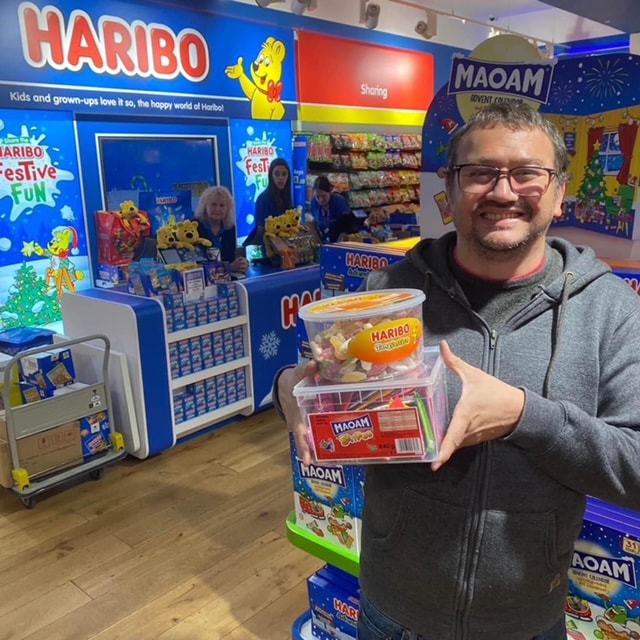
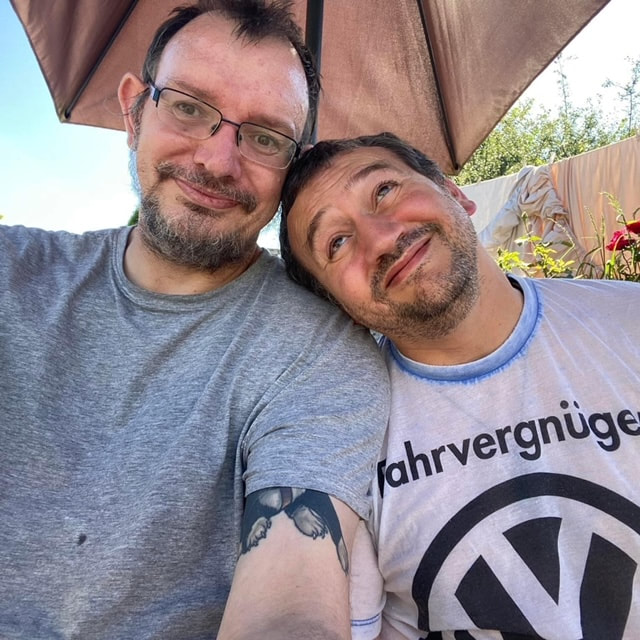
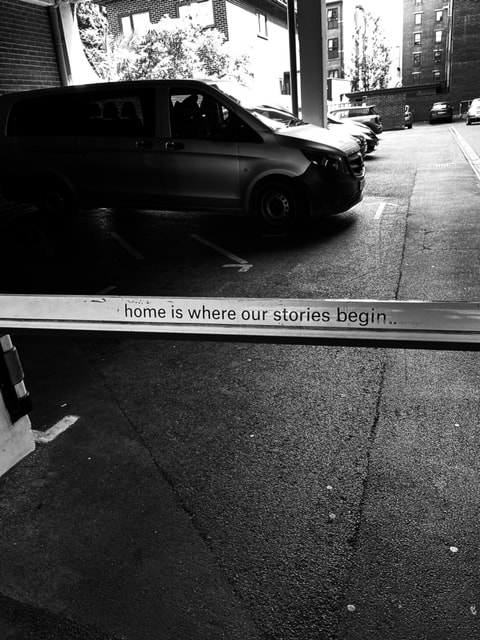

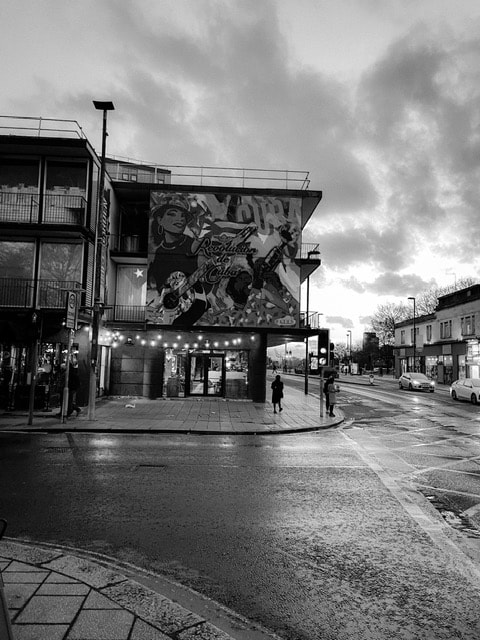
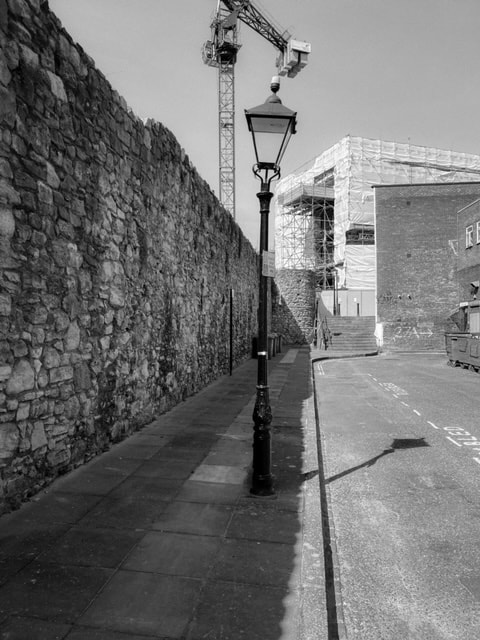
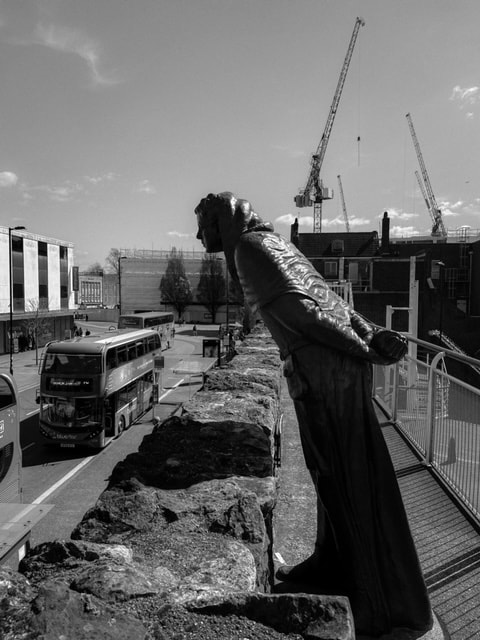
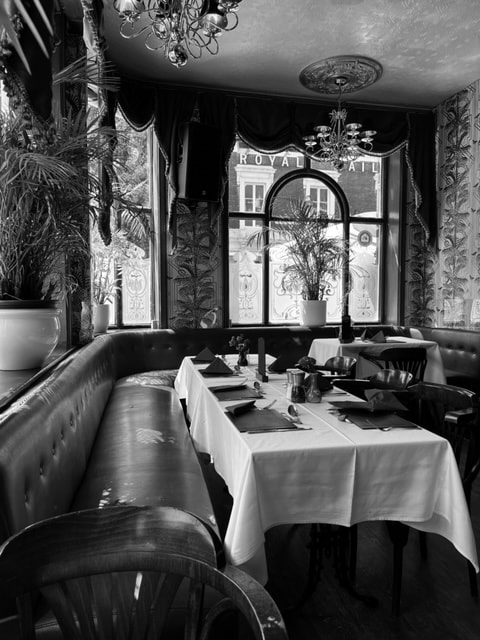
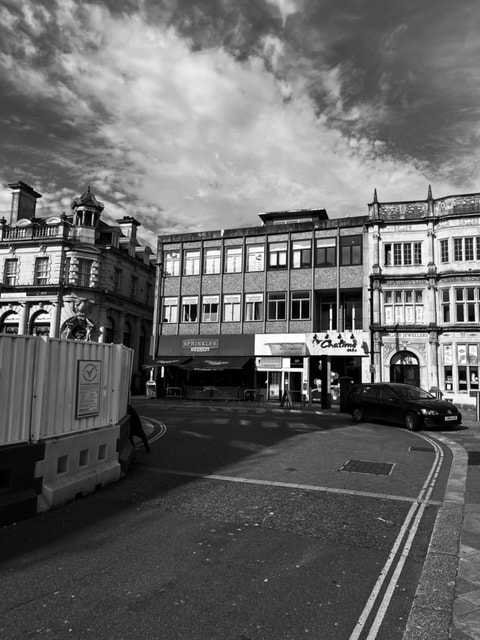
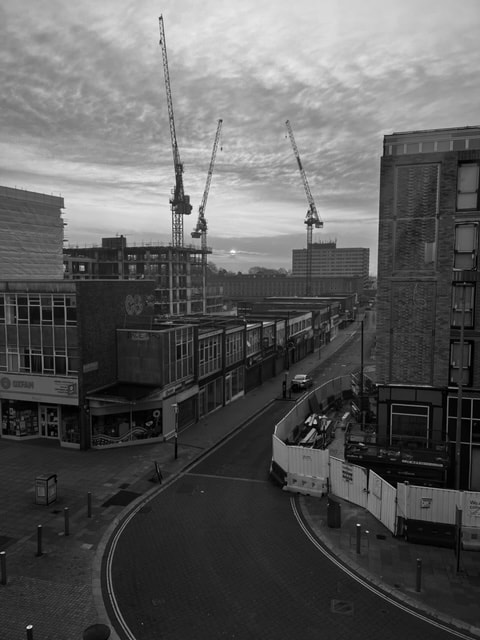
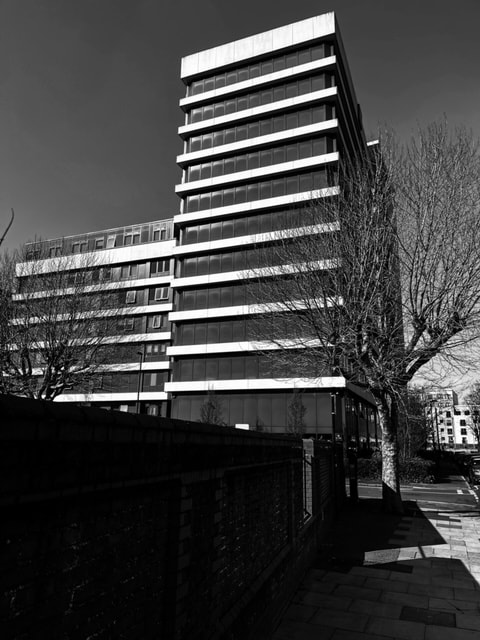
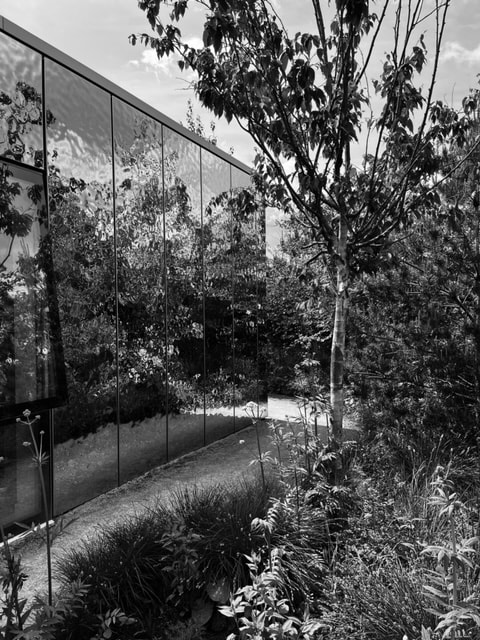
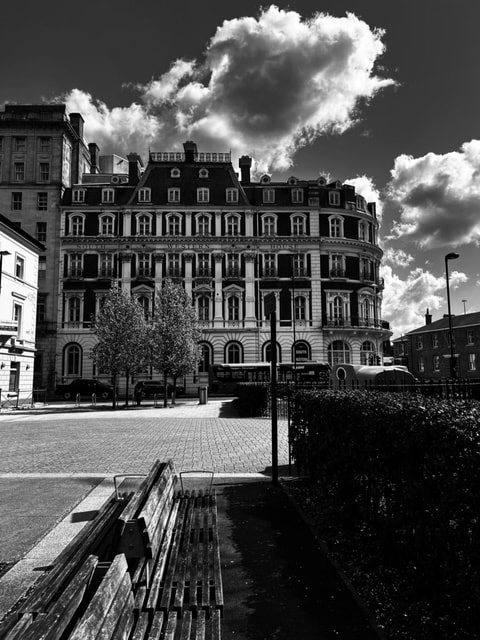
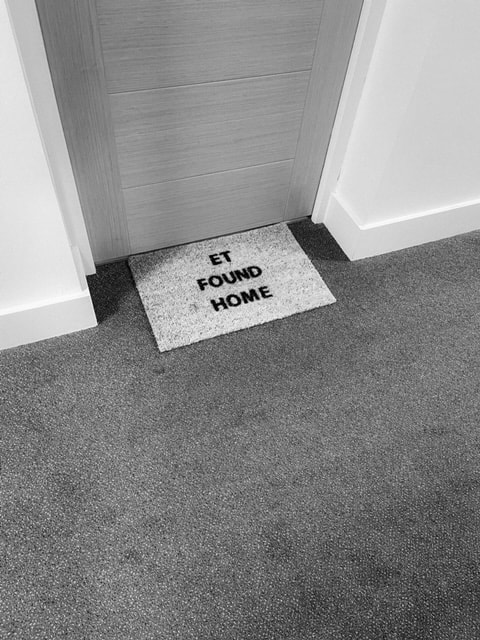
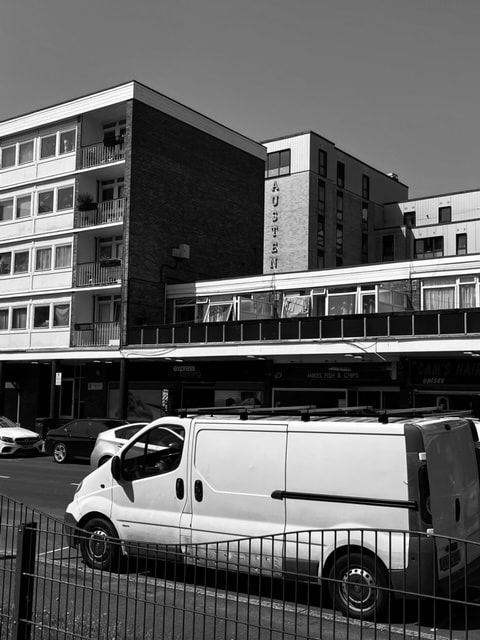
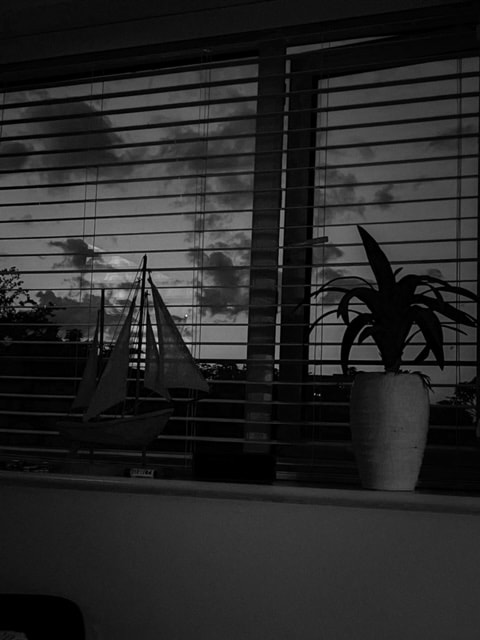
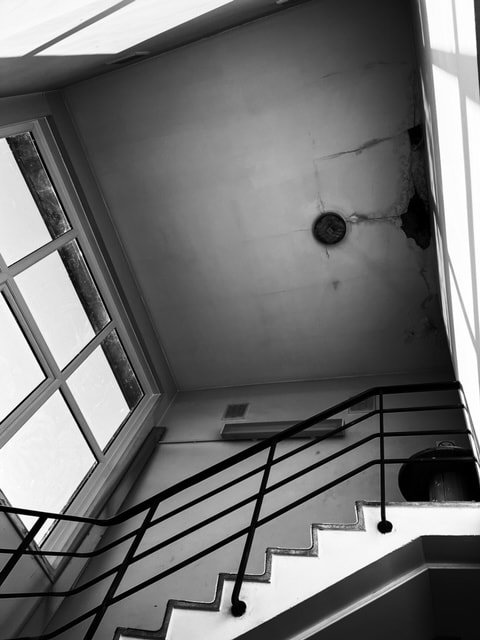
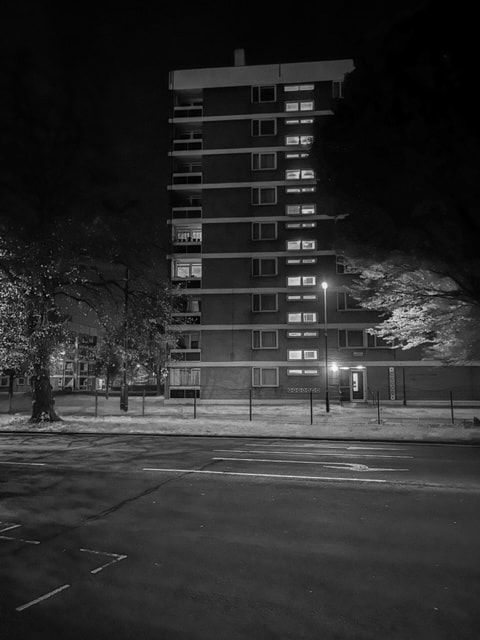
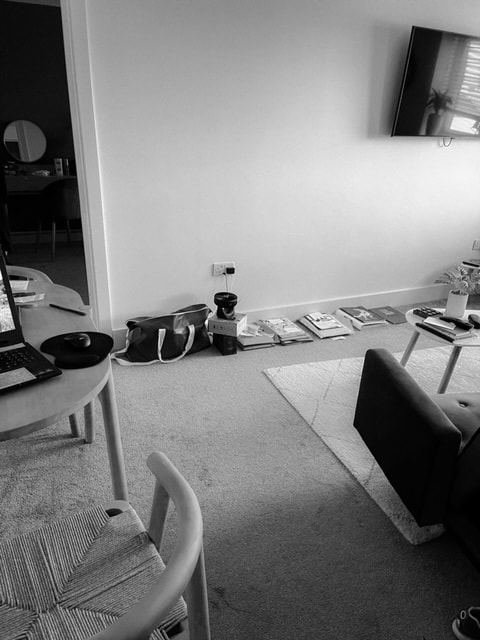
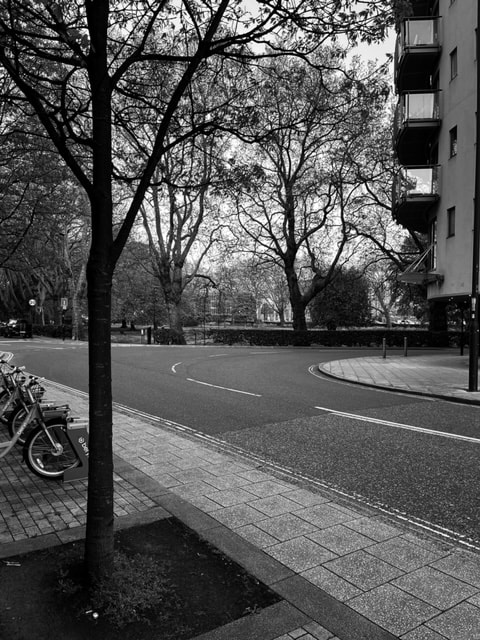
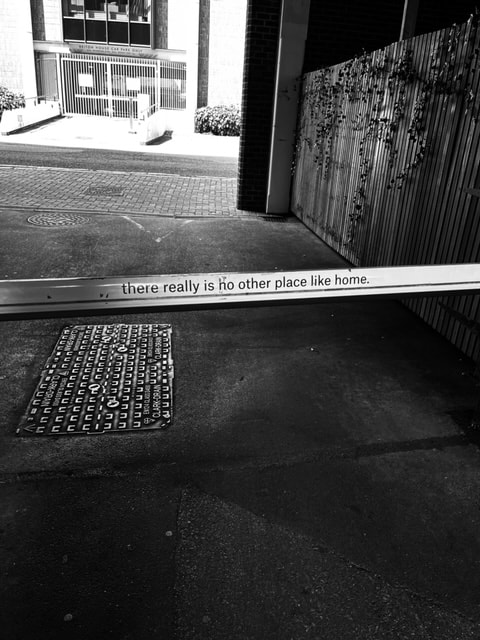
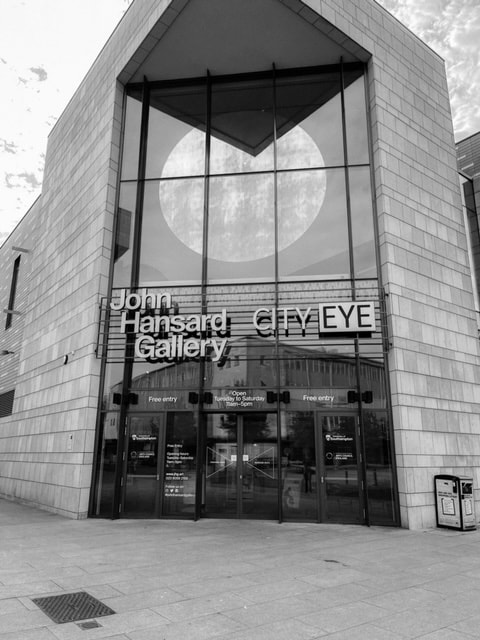

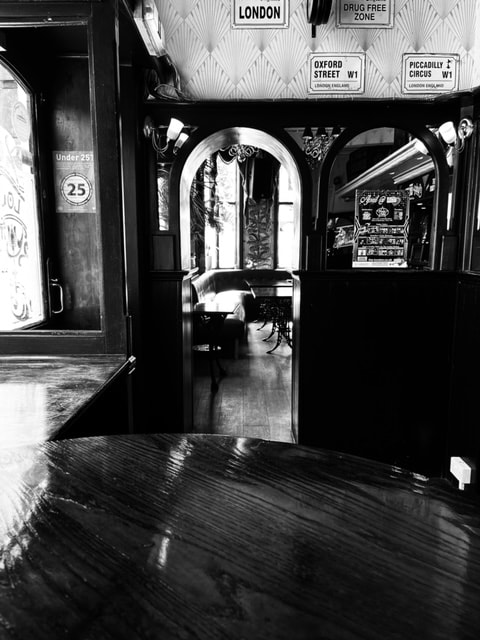
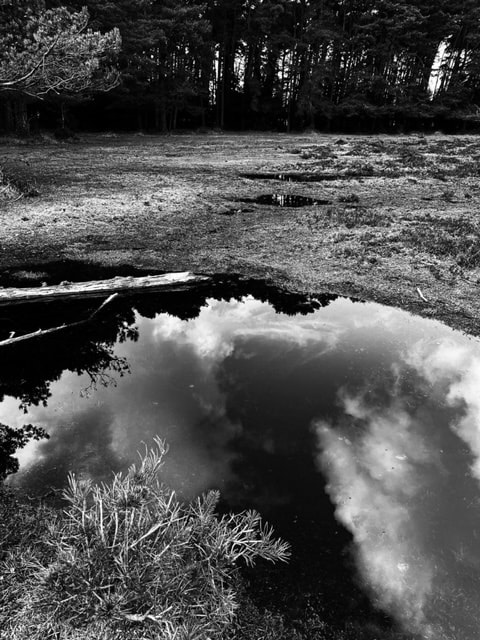
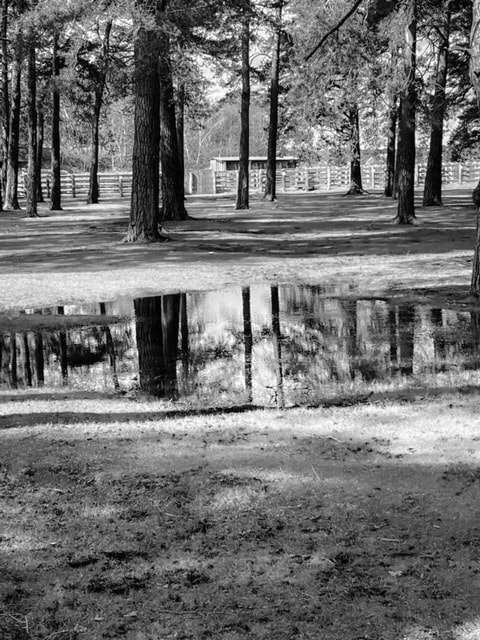
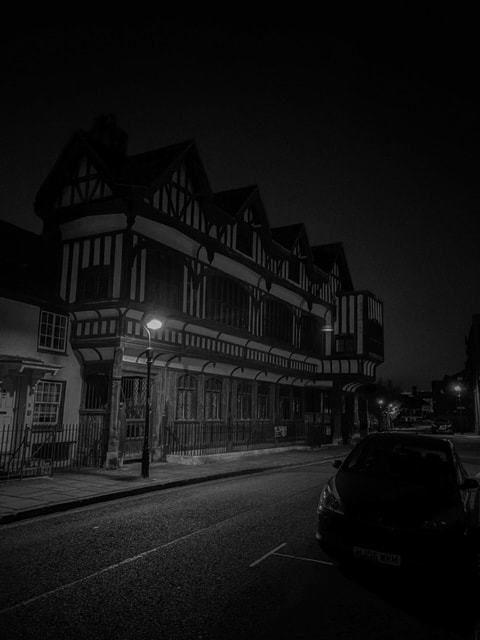
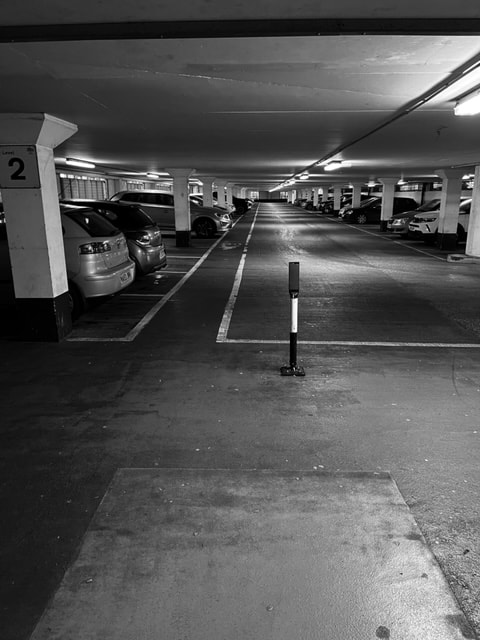

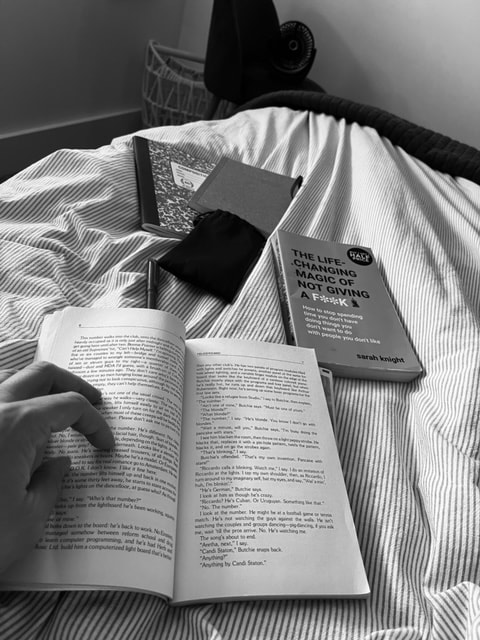
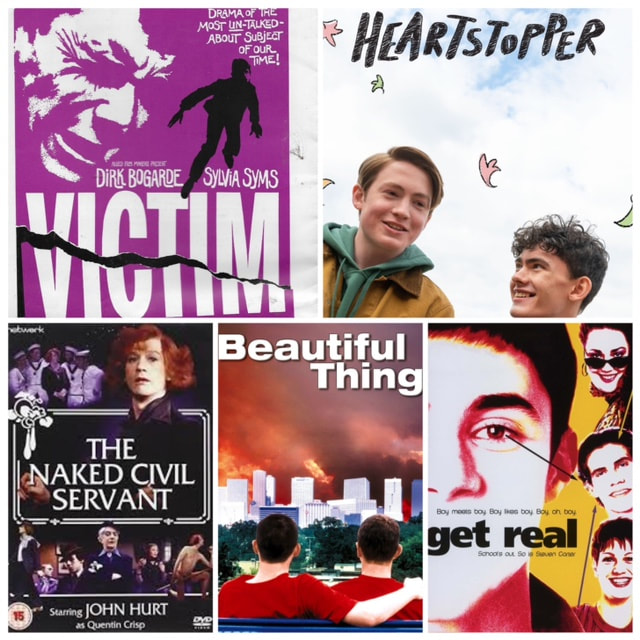
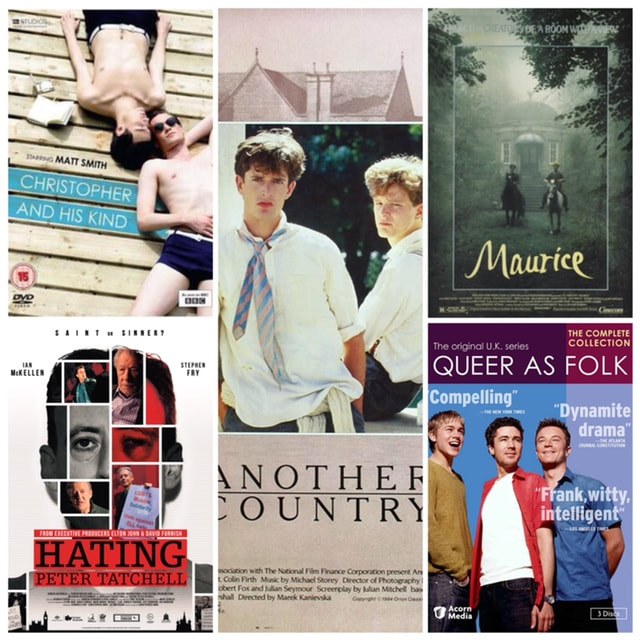
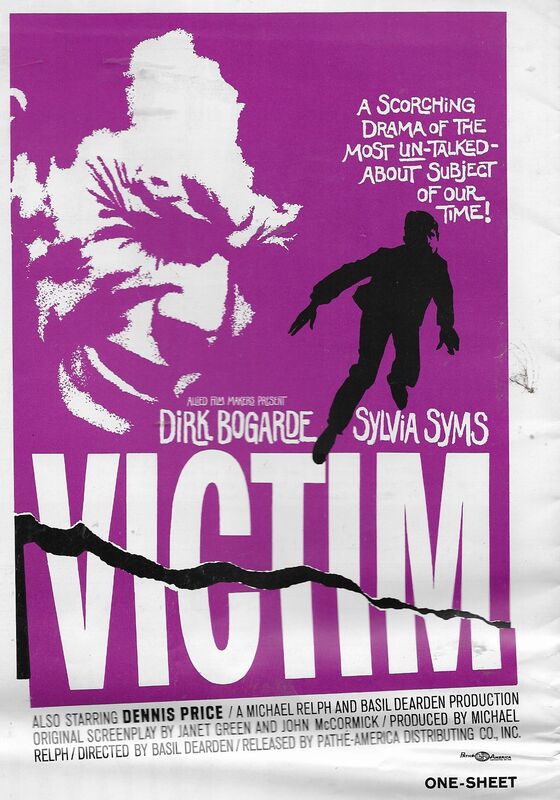
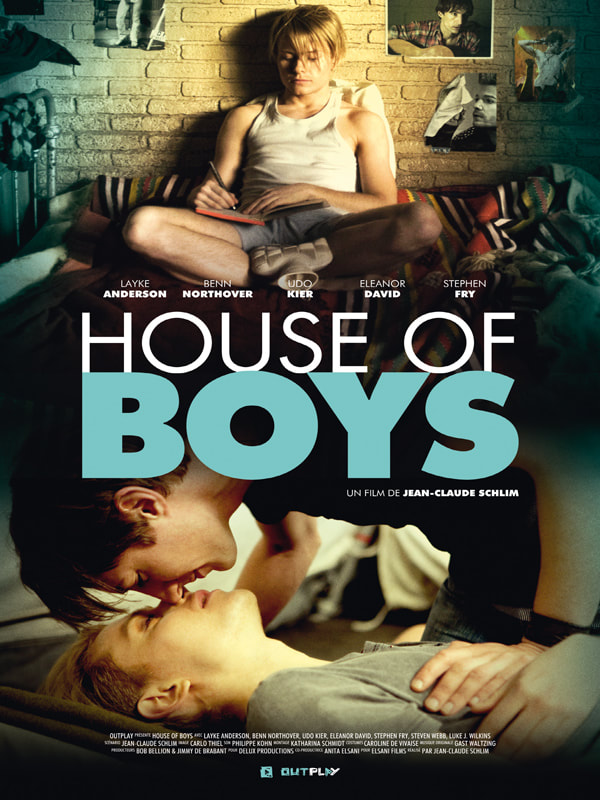
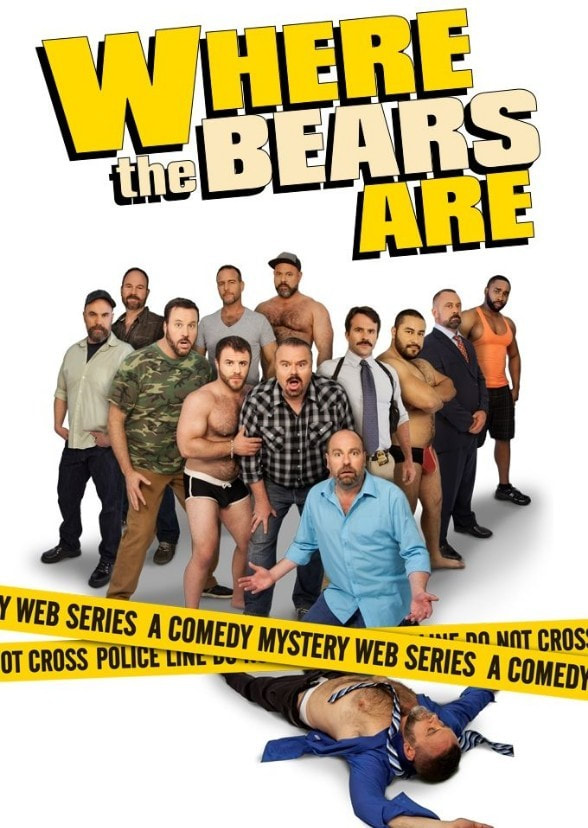
 RSS Feed
RSS Feed